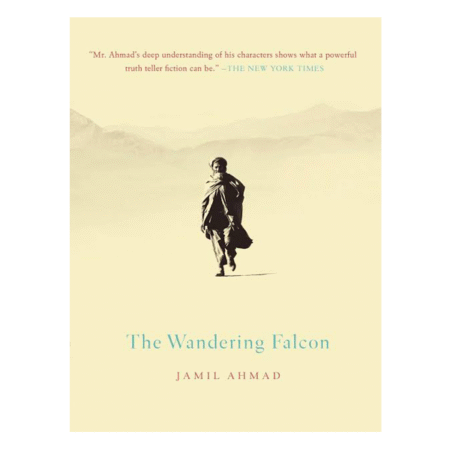Description
Jamil Ahmad
256 pages
Delivery All Over Pakistan Charges Will Apply.
Title May Be Different.
Due to constant currency fluctuation, prices are subject to change with or without notice.
Cash on Delivery not available for now!
24/7 Whatsapp Support
₨425.00
Traditions that have lasted for centuries, both brutal and beautiful, create a rigid structure for life in the wild, astonishing place where Iran, Pakistan, and Afghanistan meet—the Federally Administered Tribal Lands (FATA). It is a formidable world and the people who live there are constantly subjected to extremes—both of geography and of culture.
The Wandering Falcon begins with a young couple, refugees from their tribe, who have traveled to the middle of nowhere to escape the cruel punishments meted upon those who transgress the boundaries of marriage and family. Their son, Tor Baz, descended from both chiefs and outlaws, becomes “The Wandering Falcon,” a character who travels throughout the tribes, over the mountains and the plains, in the towns and tents that comprise the homes of the tribal people. The media today speak about this unimaginably remote region, a geopolitical hotbed of conspiracies, drone attacks, and conflict—now, told in the rich, dramatic tones of a master storyteller, this stunning, honor-bound culture is revealed from the inside.
Jamil Ahmad has written an unforgettable portrait of a world of custom and compassion, of love and cruelty, of hardship and survival, a place fragile, unknown, and unforgiving.
256 pages
Delivery All Over Pakistan Charges Will Apply.
Title May Be Different.
Due to constant currency fluctuation, prices are subject to change with or without notice.

2 reviews for The Wandering Falcon by Jamil Ahmad
There are no reviews yet.